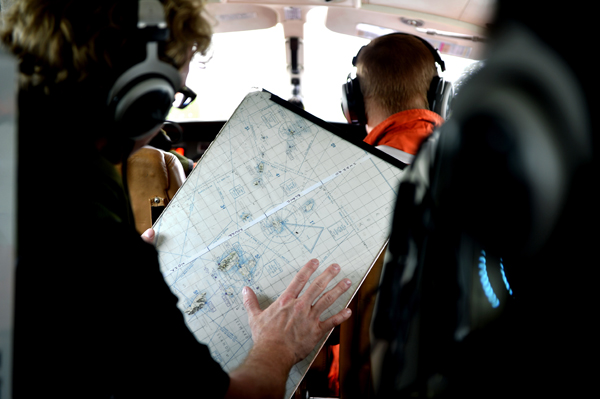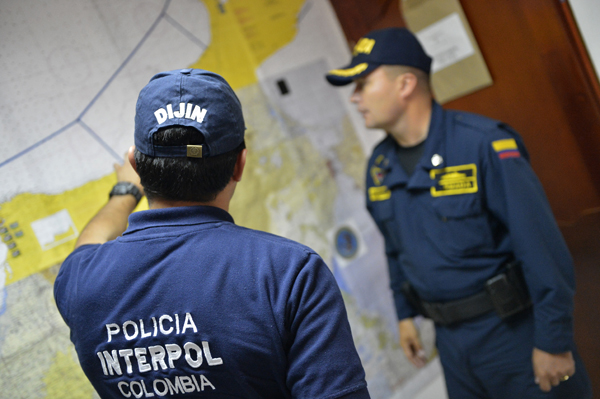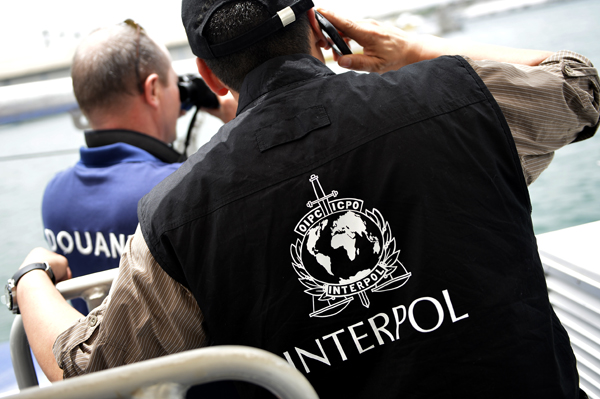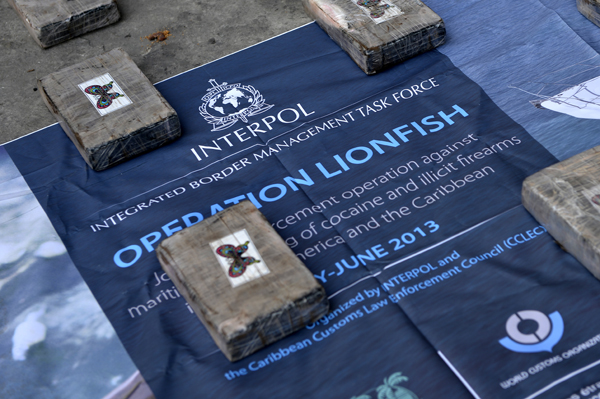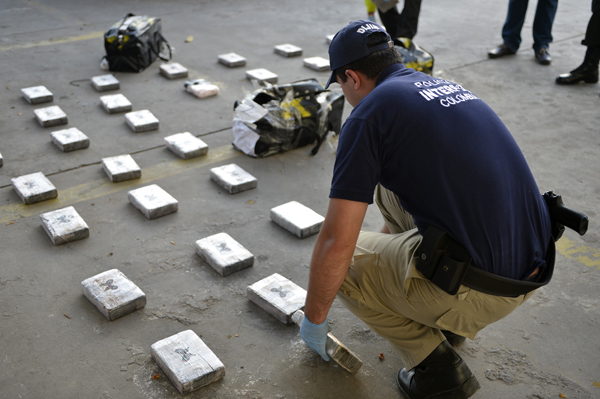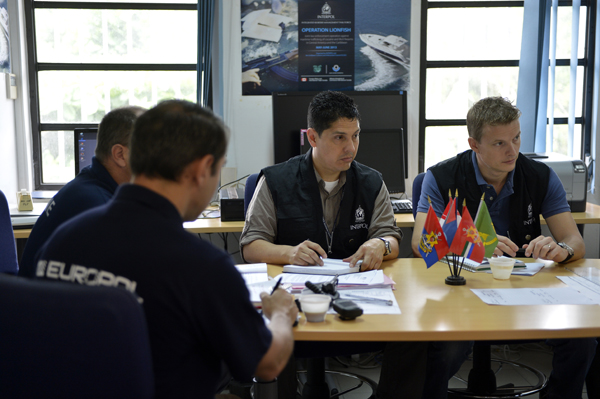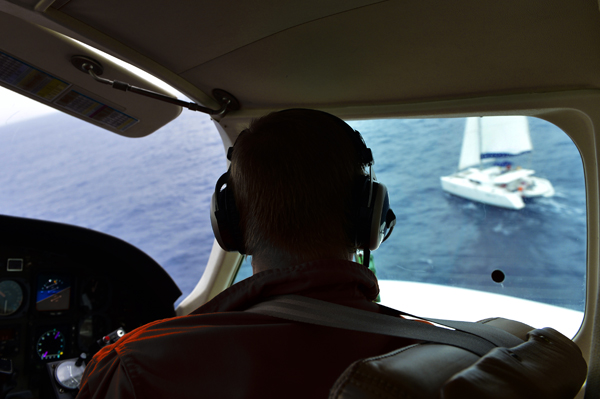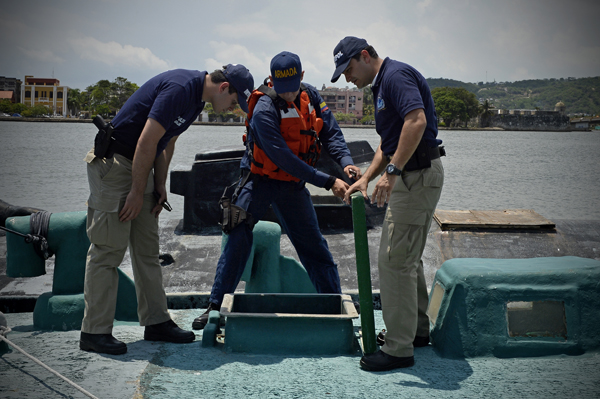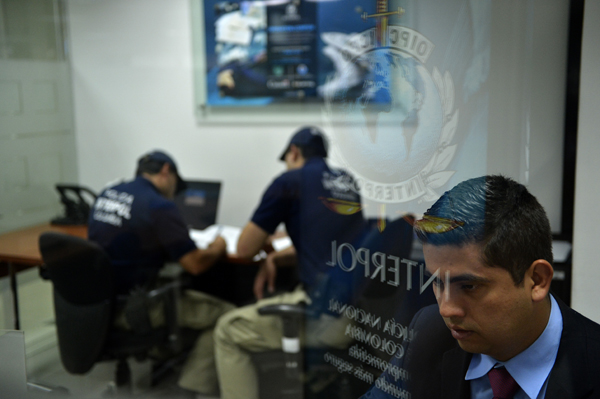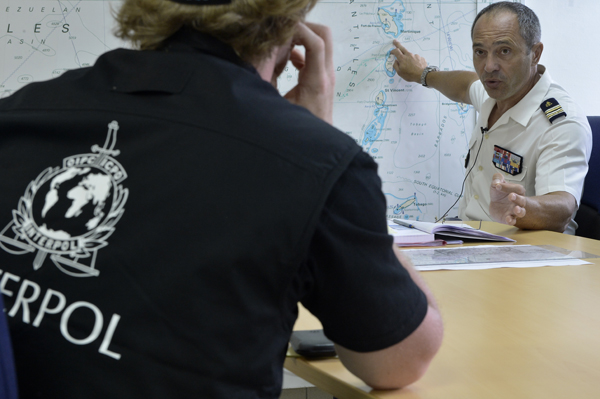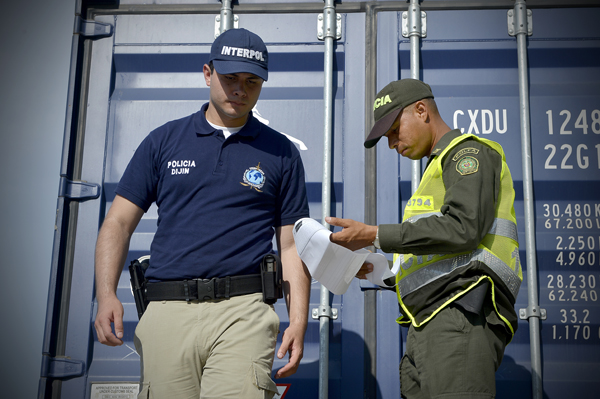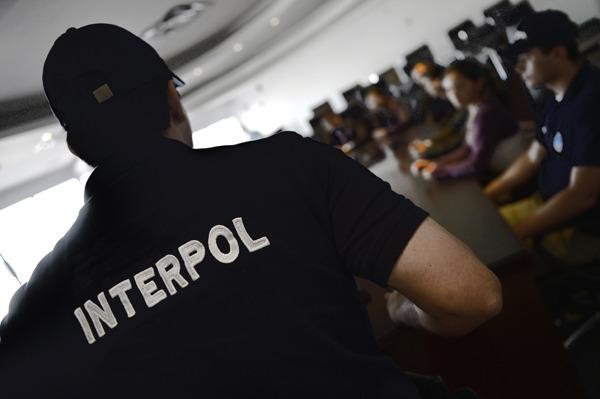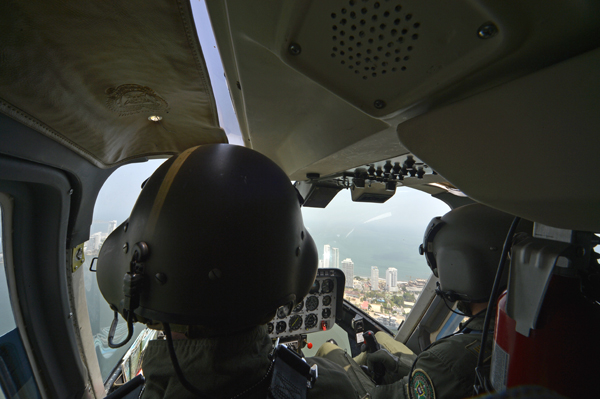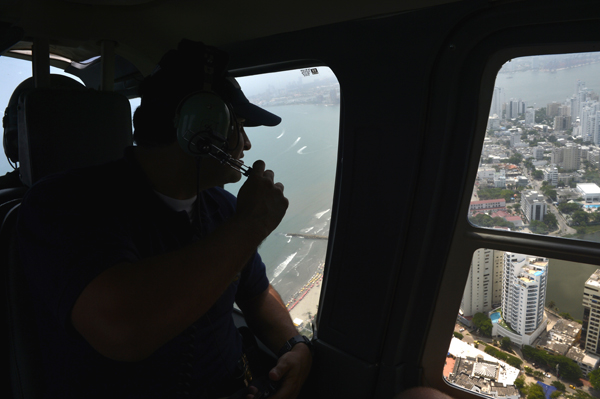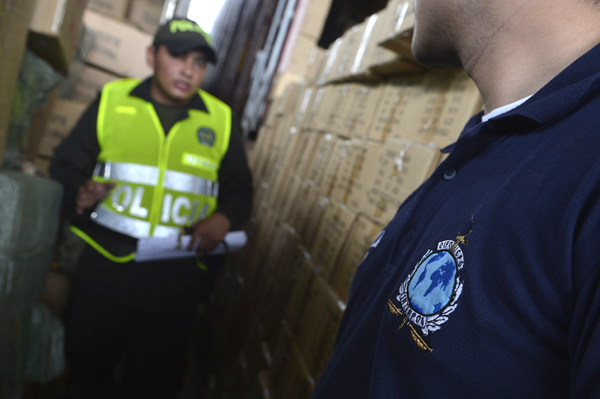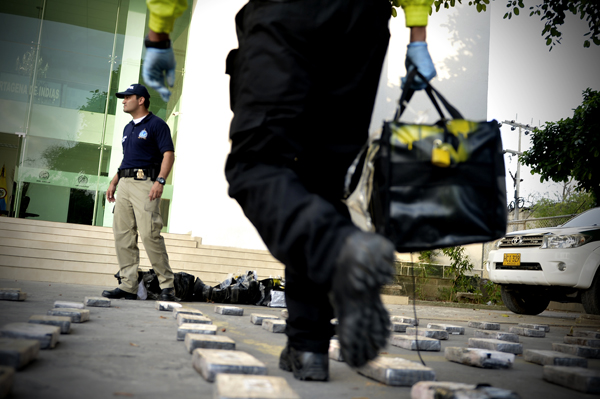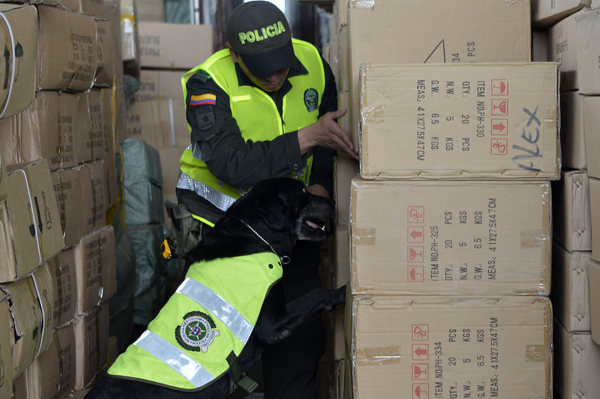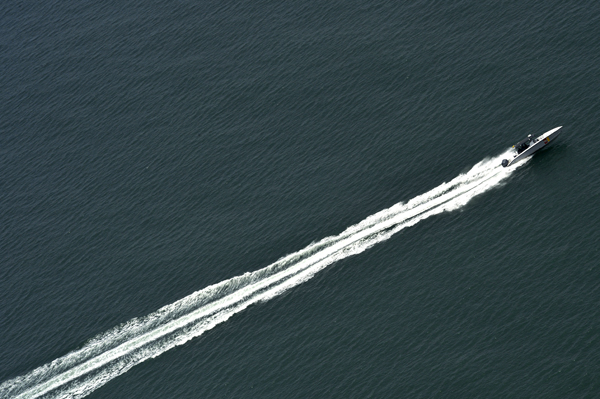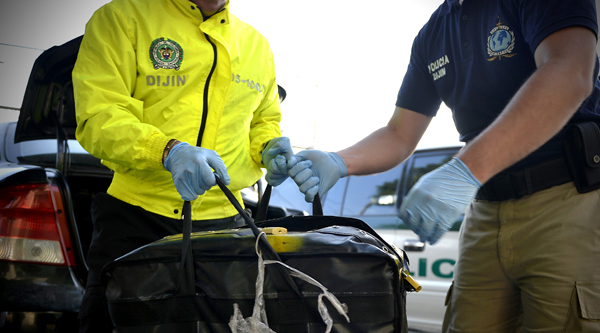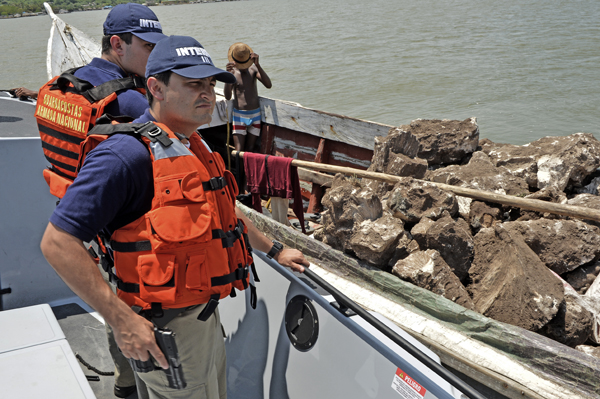LYON, France – Nearly 30 tonnes of cocaine, heroin and marijuana with an estimated value of USD 822 million have been seized in an INTERPOL-led operation targeting the maritime trafficking of drugs and illicit firearms by organized crime groups across Central America and the Caribbean.
Operation Lionfish, coordinated by INTERPOL’s Regional Bureau for Central America in San Salvador (El Salvador) with support from the Drugs and Criminal Organizations unit at the General Secretariat headquarters, involved some 34 countries and territories and also resulted in 142 arrests, the seizure of 15 vessels, eight tonnes of chemical precursors, 42 guns and approximately USD 170,000 in cash.
Two operational coordination units, at the Regional Bureau in El Salvador and the Command Centre of the French West Indies Coastguard in Fort de France, Martinique provided real-time support for information exchange and conducting checks against INTERPOL’s global databases.
Run in partnership with the World Customs Organization (WCO) and the Caribbean Customs Law Enforcement Council (CCLEC) with support from the French Coastguard, the Royal Canadian Mounted Police (RCMP) and Europol, the joint law enforcement operation was also aimed at enhancing information sharing at the regional and international levels in order to improve intelligence on modus operandi, routes and the identification of organized crime structures and key players.
“The value of operations such as Lionfish is not just about the arrests and seizures, it is also about INTERPOL’s support to its member countries to strengthen national and regional law enforcement cooperation in our continued efforts to target organized crime networks behind the trafficking,” said Mr O’Connell, INTERPOL’s Director of Operational Support.
“It is important that there is a structure in place to build on these results, and using INTERPOL’s global services, frontline officers have the tools they need to do their job which is to identify and arrest criminals,” added Mr O’Connell.
The operation was coordinated in response to growing evidence of the organized crime in the trafficking of drugs and firearms in the Central America and Caribbean regions due to its strategic location, with a significant increase in the number of cocaine seizures by local authorities, and a reported increase in violent crime.
“This operation demonstrates the importance of INTERPOL’s global tools and network, and the added value of Regional Bureaus in supporting member countries in their fight against organized crime and drug trafficking,” said Saul Hernandez Lainez, head of INTERPOL’s Regional Bureau in San Salvador.
“INTERPOL Ottawa’s participation in this operation is key, because disrupting this activity is not only critical for the source and transit countries of these drugs and weapons, but also for the destination countries, such as Canada,” said Bob Paulson, RCMP Commissioner and INTERPOL Executive Committee Delegate for the Americas. “Our strong partnership with INTERPOL continues to be crucial to combating these kinds of real threats to Canada and our neighbours.”
Describing the operation as ‘unprecedented’ in its geographical scope, CCLEC Permanent Secretary Paul Hilaire said: “CCLEC will certainly build on the achievements and lessons learned during this operation, and stands ready to consider future initiatives making our globe more secure with its international and regional partners.”
Supported by the Department of Foreign Affairs and International Trade, Canada (DFAIT), Operation Lionfish which ran between 27 May and 10 June was held under the banner of INTERPOL’s Integrated Border Management Task Force and is part of INTERPOL’s Capacity Building Programme on Organized Crime for the Americas.
Under this programme, some 161 officers from 36 countries have already undergone specialist training with events held in Panama, Jamaica, Mexico, Guatemala, Dominican Republic and The Bahamas.
INTERPOL’s Director of Capacity Building and Training, Dale Sheehan said: “Regional and multilingual training combined with operational exercises has strengthened efforts of the Americas to fight organized crime, and has offered new perspectives for future joint interventions.
“These results testify to the increasing relevance of capacity building programmes as essential pillars for international law enforcement cooperation,” added Mr Sheehan.
The following countries and territories took part in Operation Lionfish: Anguilla, Antigua and Barbuda, Aruba, Bahamas, Bermuda, Bonaire, British Virgin Islands, Canada, Cayman Islands, Colombia, Costa Rica, Cuba, Curacao, Dominica, Dominican Republic, France, Germany, Grenada, Guatemala, Jamaica, Mexico, Netherlands, Nicaragua, Panama, Sint Maarten, Spain, St Kitts and Nevis, St Lucia, St Vincent and the Grenadines, Trinidad and Tobago, Turks and Caicos, United Kingdom, United States of America, Venezuela.




